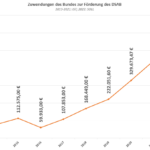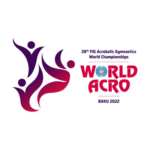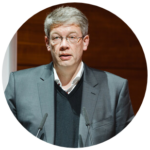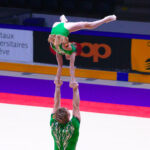Tonya Case: World Championships every year and with all-around medals
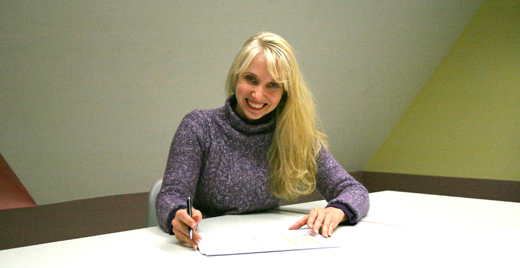
The Acrobatic Gymnastics Technical Committee of the FIG met in Aalen last weekend. „In some ways it feels like coming back to where we started because we used to spend a lot of time in Germany when Kurt Becker [former President of the German Acrobatic Gymnastics Federation] was a member of the Technical Committee“, said President Tonya Case. An interview about the World Championships in Orlando, the development of Acrobatic Gymnastics, the new Code of Points and Tables of Difficulty and the future of the World Cup Series.
Schipfel: We are facing the World Championships 2012 in Orlando. What do you expect?
Case: „I am excited about Orlando. It will be the first time that there are World Championships outside Europe since the merger of IFSA with FIG in 1998. For the first time we have six countries from the Pan American Gymnastics Union. We have participating as brand new countries Brazil, Mexico and Columbia. This is a substantial improvement. I was really concerned that the numbers would drop because we are outside Europe, and I know that it’s much more expensive to travel to the United States. But at the moment the entries are even higher than for the last World Championships in Poland. The number of the participating countries is up. The number of gymnasts has increased. That’s really exciting because it’s a huge marker in terms of the progress of the discipline.“
Schipfel: What is the next stage of development?
Case: „The most important thing that we have to do with the discipline right now is to increase the number of participating countries. Practically speaking we have more than 40 countries competing internationally, but at World Championships we only have 26 countries competing for seniors. So we need to have those additional 14 countries, which are already participating internationally to join the World Championships. And we have another 10 to 15 countries which are in the beginning stages of starting the program.“
Schipfel: Doesn’t the development of Acrobatic Gymnastics depend on the fairness of judging?
Case: „I was extremely happy with the judging in the finals at the last World Championships. I believe it was very fair, very accurate. And I was also extremely happy with the judging at the World Cup Final in Forli. And so I have to trust that the judges who come to the next World Championships will do the same thing. I believe they know what fair judging is, and I believe that we now have an understanding that to judge fairly is the only way to help the discipline, and to do anything else in fact hurts us at every level.“
Schipfel: Will our generation see Acrobatic Gymnastics in the Olympic Program?
Case: „If you had asked me that question four years ago, I would have said no. All the progress that we have made as a discipline in the last three years shows: If we continue that progress, it’s a reasonable expectation. When, I can’t say. We have proved that the numbers are growing. We need 60 or 70 countries, and, of course, this takes time. But it’s a realistic expectation now, and it wasn’t before. I think the countries have understood what the mission is. That it doesn’t help us when they are showing off at European Championships, and not at World Championships. It doesn’t help if they are going to local international competitions, but not coming to the World Championships.“
Schipfel: Do the authorities of the FIG want Acrobatic Gymnastics to be in the Olympic Program?
Case: „It’s always a complicated, even political process because: Where do the places come from? Gymnastics would have to request more places from the IOC. Or we would impact on the participation of other disciplines. So there is no easy solution.“
Schipfel: What are the main topics here at your Technical Committee Meeting in Aalen?
Case: „We have two main topics. The first are the Tables of Difficulty because our friends from Germany [Vitcho Kolev, Albert Jung und Frank Böhm] are helping us to have an easier system, in particular for pairs, to calculate the values. And we are taking the input of the experts who were with us at the Acro Symposium in Berlin and looking at the values of elements and making the changes that we feel appropriate. It’s a huge job.
The second topic is that we haven’t completely resolved all the issues in respect of artistry judging and so we have to finalize that.“
Schipfel: When will the new Code of Points and the new Tables of Difficulty be published?
Case: „They will go to the Executive Committee next week. Once the Executive Committee is satisfied with them, they go out to the countries for feedback. So I expect that the new Code of Points and Tables of Difficulty will be published in the next couple of months for review. The final version won’t be published until after the Intercontinental Jugdes‘ Course in January 2013.“
Schipfel: There used to be individual finals. European Championships have returned to that system. Will the next Codes of Points include individual finals at World Championships?
Case: „Not at the moment. When we came to the FIG and we had less than 20 countries coming to World Championships, those medals were just shared among the same three countries, or sometimes a fourth country stepped in. And the FIG didn’t consider those medals worth very much. Because when you are just sharing them around, why do you need to share three medals, when one represents the real level? Of course, from an Acrobatic Gymnastics‘ point of view we see that there is a huge difference between balance and dynamic. The FIG doesn’t see the huge difference because they consider that we are still working on one apparatus, which is the floor. We understand inside Acrobatic Gymnastics that pairs or groups which are really strong in balance may not necessarily be strong in dynamic, and vice versa.“
Schipfel: So the competition program at World Championships stays the same?
Case: „According to the discussions with all the experts at the Acro Symposium in Berlin: It’s one thing that we only have one medal, but they also feel that the value of the one medal is diminished because it’s not an all-around medal any more. What I liked about the European Championships in Bulgaria was that in the all-around finals, when someone had fallen in dynamic, they did not win a gold medal. In the system that we have at World Championships they can fall in dynamic. As long as they make that top eight cut, they can go on and win a gold medal in the final. I don’t like that system. I think that the coaches and the gymnasts feel that if it’s one medal it should be an all-around medal. That medal itself would have more value. This is a proposal we are putting forward to the FIG based on the feedback from the countries.“
Schipfel: Do you abide by the World Cup Series even though there are hardly any participants mostly?
Case: „The World Cup Series is a struggle for Acrobatic Gymnastics because it’s basically funded by the gymnasts. It’s a great opportunity for us to have world class competitions several times during the year, but the participation is not what I would like it to be, of course, and I don’t know if it will ever be what I would like it to be. I also can say that it frustrates me that we have so many international tournaments and yet we struggle to have a World Cup Series. We have lots of federations going to all of these smaller tournaments like the Volkov Cup in Russia, for example, which in my opinion should be supporting the World Cup Series instead. From the FIG standpoint a World Cup Series is important for us. It’s a standard type of competition in every sporting discipline.“
Schipfel: The World Cup Final in Forli was different.
Case: „That was a special invitation of the FIG President Bruno Grandi [to his home town]. Everyone understood that this was a huge honor to Acrobatic Gymnastics because he could have chosen any discipline. But he invited us and the federations realized that in some ways the future of Acrobatic Gymnastics depended on being successful there. So for us the World Cup Final in Forli was a huge success at every level. The interesting thing about Forli was that there was a non-acrobatic crowd: The spectators were from the city. When that group of people gives us standing ovations you understand that you have something special that touches people even if they have never seen Acrobatic Gymnastics before. For us that was a great experience. It was a really special event, and I know that every federation that was there – and unfortunately Germany wasn’t – understood the importance and the value and came away with just amazing memories. It was for me one of the highlight of my entire Acrobatic Gymnastics experience.“
Schipfel: For the first World Cup of the new series in Maia in three disciplines again less than four nations registered…
Case: „…and that’s a disaster for us. It means that there will not be a overall World Cup given to those three disciplines because we only have three events in this series. It sounded very interesting to lots of people to be able to have an event at this stage of the game in preparation for the World Championships, but practically speaking the federations don’t have the money to support this event. We should have put all the World Cup Series between July and November. Probably that time would have been better. But frankly speaking, every country in the world says that they would prefer World Championships every year instead of a World Cup Series. So that’s the direction we are moving. We have made this proposal to the FIG, and if we have the host federations they will allow us to do that. So 2014 is fixed and we are working on 2015 and 2016. At that point we would have World Championships in three years out of four, only in the year of the World Games we wouldn’t.“
Schipfel: Thank you very much!
Category: Personalien und Verbandsangelegenheiten


